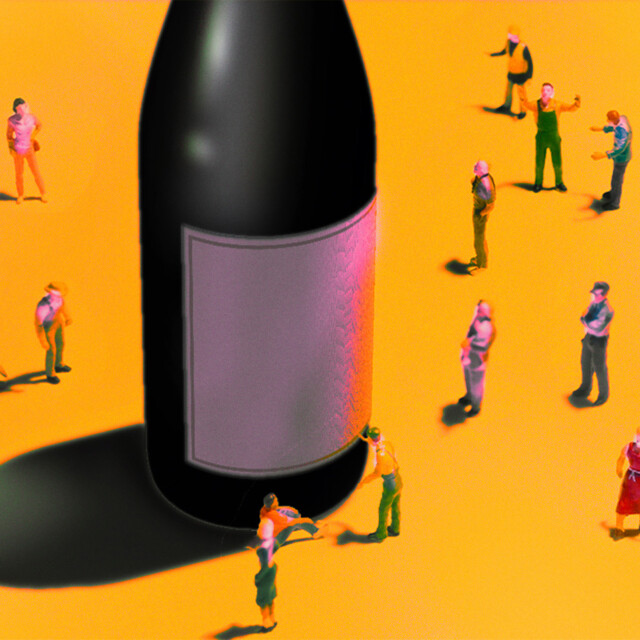Cristina Gonzales of Gonzales Wine Company fell in love with wine while studying abroad in South America. Upon returning to Healdsburg, Calif., where her parents had settled, she sought out various jobs in the wine industry. Through these hands-on roles, and an eventual move to Oregon, she realized winemaking was her calling. But it wasn’t easy.
“I started to see that my path to being a winemaker wasn’t going to be in the traditional way of working my way up the ladder,” she says. “There was really no room for me. Winemaking has always been a white, male-dominated industry. There weren’t a lot of people who looked like me in the cellar.”
Indeed, according to The Roots Fund 2021 Annual Report, less than 5 percent of the wine industry “is people of color in ownership in wine.” In the Women Raising The Bar: 2023 Diversity, Equity, and Inclusion in the Beverage Alcohol Industry Study, 49 percent of respondents cited a lack of diversity, equity, and inclusion as a reason to avoid a career in the alcohol industry.
In true garagiste fashion, Gonzalez started her label in a friend’s garage in 2010 using fruit from Yakima, Wash. After several life changes, in 2018, the now single mom knew it was time to buckle down and turn her fledging project into a bonafide business. She bounced around several facilities and setups until she learned about AVP Wine Collective, which opened its doors this past summer.
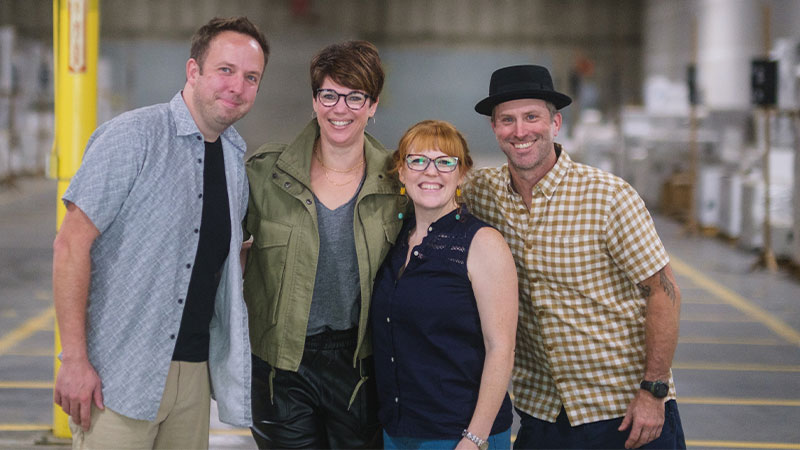
The 60,000-square-foot facility houses several labels, which share winemaking equipment to produce their respective wines. Founder Carrie Wynkoop and winery director Corey Schuster created the space with the mission of offering a safe and inclusive path for underrepresented winemakers to gain a foothold in a historically exclusive industry.
AVP is just one of several recently opened processing facilities that operate with a deeper mission. A new breed of communal winemaking spaces are reimagining the format and harnessing the power of community to affect change in the industry. These facilities, which prefer the term “collectives,” provide education, mentorship, and — often — financial assistance to those who find themselves marginalized in the wine world.
What Is a Custom Crush?
For aspiring winemakers, custom crush facilities provide an economical on-ramp. In these shared setups, startup producers have access to equipment and services, eliminating investments in pricey machinery. Such facilities operate under one of two licenses: as a custom crush, or an alternating proprietorship. With the former, the operator oversees all of the production (even though fruit comes from the client), and technically owns the wine until the client pays all the necessary taxes. With the latter, the client must be a registered winery with the TTB. This setup offers more autonomy throughout the vinification process.
Rethinking the Model
There is evidence of the custom crush model serving communities as far back as the Great Depression. In 1936, growers of Zinfandel in San Luis Obispo were desperately seeking buyers for their fruit. Sylvester Dusi, a grower himself, had the idea to lease warehouse space, bring in equipment, and allow Italian farmers to crush their grapes in what was to be called San Luis Winery. Dusi then helped with vinification. Although they were only able to produce one vintage, due to contaminated barrels, Dusi was able to sell the bulk wine to a distiller for brandy production.
Wynkoop was already deeply rooted in the Oregon wine scene when she ideated AVP Collective about a year ago. (AVP stands for “Alis volat propriis,” which means “she flies with wings.” And as the Oregon state motto, Wynkoop says it dovetails with their mission.) Prior, she ran Cellar503, a wine club that featured small-production Oregon wineries.
“As a small producer, you’re kind of at the mercy of the landlord. Being in those places for so long, it really kind of started to hurt my mental health.”
During routine check-ins with her Cellar503 winery partners, Wynkoop regularly heard of producers struggling to find space to make wine. “One of the awesome things that’s happened in Oregon over the past decade is that our reputation for high-quality wine has really increased,” she says. “But the downside of that is that people are coming in and buying up the mid-sized wineries.”
Often, estates would let aspiring winemaker friends set up shop in a corner. But under new ownership, these micro-producers were kicked out. Wynkoop estimates that, within the past year, at least 30 of her contacts have found themselves homeless. The spaces that were available were often run by someone who might have been behind on rent. To generate money, they allowed others into their winery, but Wynkoop recounts tales of poor management or an operator who kept the best equipment for themselves.
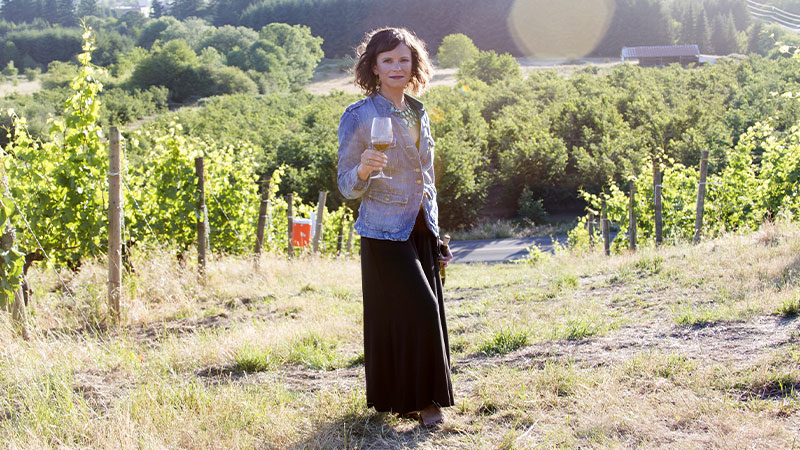
Gonzales encountered similar situations when trying to get GWC off the ground. “As a small producer, you’re kind of at the mercy of the landlord,” she says. Her struggles with broken equipment and working with people who didn’t share the same cleaning protocols were compounded by the demands of raising a child as a solo parent. Her work needed to revolve around her son’s school or the babysitter’s schedule. “Being in those places for so long, it really kind of started to hurt my mental health,” Gonzales says.
When kicking around the idea of a new home for displaced producers, Wynkoop and Schuster set several criteria in place, one being that they cultivate an inclusive working environment “for people who don’t often feel safe or welcome in the industry,” Wynkoop says. “I think we’ve all heard our share of horror stories about women being sexually harassed or LGBT people just not feeling comfortable in a space.” The duo carefully vets potential members and makes everyone sign a “no assholes” code of conduct before any other paperwork is presented.
Incubator Programs
Breaking into the industry is a challenge for almost everyone interested in making wine: Sourcing fruit, buying equipment, purchasing bottles and other materials — it’s an expensive and daunting endeavor, especially if you have limited funds and almost no connections. That’s exactly why Common Wealth Crush (CWC) in Virginia’s Shenandoah Valley launched its incubator program, which takes on most of the costs for a label’s first vintage, and supports underrepresented winemakers in the process.
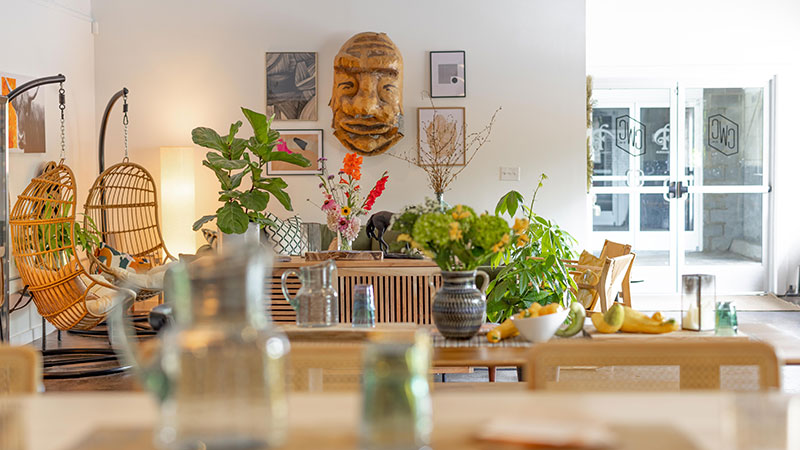
Ben Jordan, co-founder of CWC, was making wine under the Lightwell Survey label at Early Mountain Vineyards for several years, but as the estate expanded and gained acclaim, he knew the clock was ticking on his time there. Together with his brother, Tim, and friend Patt Eagan, they decided to pitch investors on the idea of a custom crush. “We saw a younger generation that needed a new direction and outlet for creativity,” Jordan says. Lee Campbell, a Brooklyn-based sommelier and colleague, joined the operation, and in 2022 CWC welcomed its first vintage.
Their focus from the get-go was to foster an environment where ideas and knowledge would be shared freely among winemakers, and from this came the incubator program.
CWC helps source and fronts the cost of grapes for the first vintage, which can be recouped at a later date, potentially through wine sales. The team also provides winemaking services and the use of equipment at no cost for the first year and at a discount in the future. In addition, Jordan and the CWC provide mentorship, education, and guidance throughout the winemaking process.
The effort, Jordan says, doesn’t just benefit the cohorts, but the greater Virginia wine industry. The winemakers utilize CWC’s networks to support distribution and sales, which in turn diversifies Virginia’s portfolio. “[The state needs] new perspectives and ideas to make it a better place to make wine,” Jordan says.
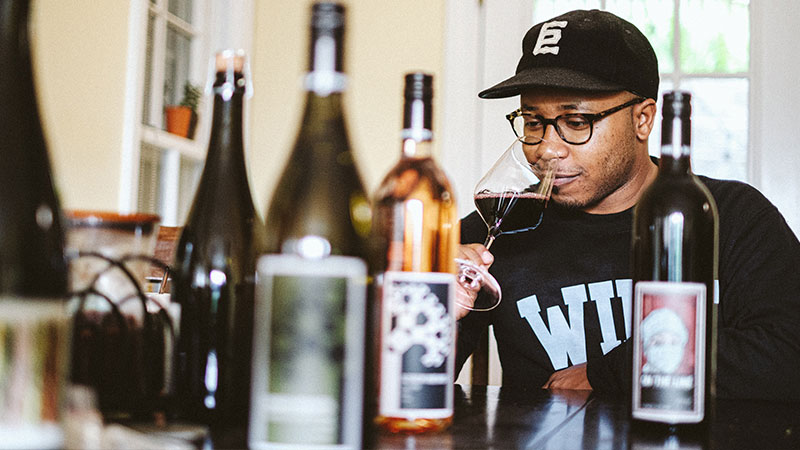
As one of the first beneficiaries of CWC’s incubator project, Reggie Leonard sees its far-reaching effect. He calls his winemaking “active leadership,” meaning someone always needs to go first, regardless of the unknown. “When you’re out front, you can see a little bit more of what’s ahead of you than the people that aren’t up there, just because your vantage point is different. And so from that standpoint, you’re leading. You’re absorbing risk.”
AVP plans on launching a similar program next year, “focusing on women, people of color, LGBTQ folx — people who traditionally banks don’t like to loan to,” Wynkoop says. Like CWC, AVP will pay for a certain tonnage of grapes and will give winemakers free access to its space; Schuster will also mentor the members throughout the entire process. Once they have completed and sold that first vintage, program graduates will pay AVP back at a “very, very low interest rate so that we can use those funds to pay it forward to others in that scenario,” Wynkoop says.
“If we can put together a package that helps two or three of these winemakers get started every year, how great will that be to change the face of the wine industry?” Wynkoop says.
Low Intervention, Maximum Impact
Nearly all of the winemakers at AVP and CWC have an interest in low-intervention vinification methods and organic farming. Many, including Leonard, say that natural wine and the culture around it piqued their initial interest in the beverage. Leonard vividly recalls one video of Action Bronson speaking with Frank Cornelissen: “[Bronson’s] wearing shorts,” Leonard says. “He listens to rap. This is not the flowy-dress-floppy-hat wine. This is me and my Jordan Ones.”
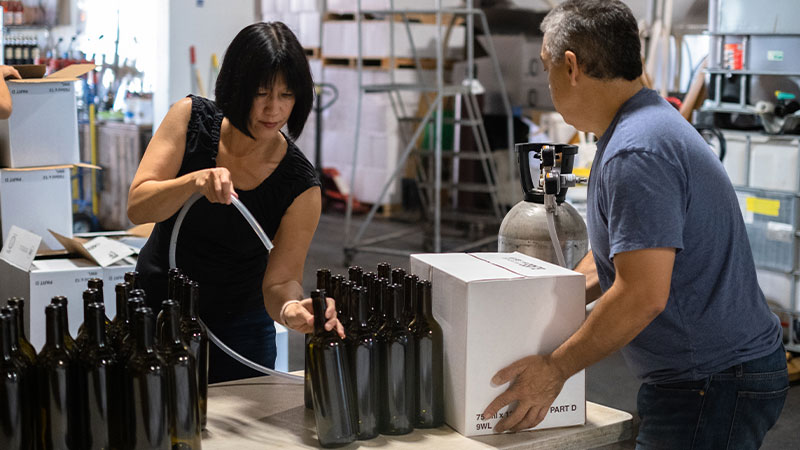
Low-intervention winemaking is similarly the core philosophy for Noel Diaz and Barrie Quan, founders of Purity Wine and the Richmond Wine Collective, a shared facility they opened in the Bay Area in 2017. After outgrowing their old facility, the duo relocated to a warehouse with five other winemakers to divide costs. But as others eventually moved on, Diaz and Quan were left shouldering the lease. Given that natural wines played a big role in their personal wine journey, they sought to revamp the space and bring in like-minded vintners, especially women and people of color.
Diaz and Quan see The Richmond Collective as an incubator to ”further the conversation around natural wine in California,” Quan says. In addition to the winemaking itself, they operate a wine bar nicknamed “the study,” which features natural wines from members as well as from around the world. Through tasting and discussion, winemakers place themselves in a broader context and remain on the pulse of what’s happening in the industry. “It’s been very beneficial to the community,” Quan says.
“We really want to push ourselves,” Diaz says. “We test each other all the time.” However, he emphasizes Richmond Wine Collective is not a competitive space. “We’re supporting each other. And as we learn from each other, we grow stronger.”
With natural wine proving to be one gateway into the industry, the next question is: How can underrepresented winemakers carve out their own niche?
Hybrids might be one answer. Grapes like Chambourcin and Chardonel thrive in Virginia, and, as a cheaper crop than traditional vinifera, are more accessible. At CWC, intensive trials with hybrids are underway. The commitment to trying something outside the norm and take risks proves how collectives can serve as think tanks — and raise up a new generation of winemakers.
Paying It Forward
As collectives’ members and protégés grow and find success, many hope to take on mentor roles themselves. “You have all these historically cascading effects and laws” that prevented people from partaking in certain jobs or cultures, Leonard says. It’s not enough that opportunities in these previously gatekept areas arise, he says. The path is “illegible” — people need tangible examples to see how they fit in.
“For me, working in wine, that leadership makes it more legible,” Leonard says.
The stability of the collective allows Gonzales to pay it forward, too. She recently partnered with Vivianne Kennedy of RAM Cellars, and opened Community Wine Bar, a tasting room and wine bar in Portland, Ore. Tastings are offered in English, Spanish, and American Sign Language (ASL).
“[Like AVP] we opened Community to really create accessibility for marginalized communities,” Gonzales says. “[We envision it as a space] to taste wine, to get to know wine, and be a place where it feels safe and welcoming to people that look like us.”
This story is a part of VP Pro, our free platform and newsletter for drinks industry professionals, covering wine, beer, liquor, and beyond. Sign up for VP Pro now!
